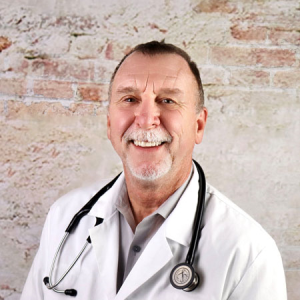What is an Exercise Stress Test?
To complete the test, you will be asked to exercise on a treadmill while your doctor monitors your heart rate.
Before you begin, you will be connected to an EKG machine. Your doctor will check your heart rate and breathing before you begin exercising. Your doctor may also have you breathe into a tube to test the strength of your lungs.
You will start off walking slowly on the treadmill. The speed and grade of the treadmill will increase as the test continues.
When your doctor is satisfied with your results, you'll be able to stop exercising. Your heart rate and breathing will continue to be monitored after the test is complete.
After the test, you will be asked to rest. Your doctor will review the results with you. The test could reveal irregular heart rhythms or other symptoms of heart dsease. Your doctor will discuss a treatment plan for you.
Why do an Exercise Stress Test?
An Exercise stress test is primarily used to help your doctor determine if your heart receives proper oxygen and blood flow when it needs it most, such as while exercising.
It can be ordered for people who have been experiencing chest pains or other symptoms of heart disease.
An exercise stress test may also be used to help determine your level of health, especially if you are starting a new exercise program. This allows your doctor to learn what level of exercise you can safely handle.
If you are over 4o and a smoker or have other risk factors for heart disease, you should talk to your doctor to see if an exercise stress test is a good idea for you.
According to the U.S. Preventative Services Task Force. The American Academy of Family Physicians recommends exercise stress testing for individuals whose jobs are linked to public safety, such as police officers or firefighters.
- The American College of Sports Medicine recommends stress testing for:
- Men over the age of 40
- Women over the age of 50
- Any asymptomatic persons with multiple cardiac risk factors
- Individuals who have led a relatively sedentary lifestyle and are about to begin a vigorous exercise program
What puts me at risk for heart disease?
Age
Men over 40 and women over 50 are at increased risk for heart disease.
Family History
Talk to your parents, grandparents, siblings, aunts, and uncles about who has had a heart attack, stroke, or other serious health problem.
Cholesterol
If you do not know your cholesterol levels, ask your doctor if it should be checked. To reduce (and prevent) a high cholesterol level limit how much cholesterol and saturated fat you consume and exercise daily.
Blood Pressure
Lifestyle changes that include losing weight, exercising, not smoking, cutting down on sodium intake and limiting alcohol can help reduce your levels.
Diet
A diet high in saturated and cholesterol has been linked with heart disease and many other health problems.
Smoking
Quitting is the single best option to better your health and lessen your risk factors.
Weight
Being overweight puts extra strain on your heart and blood vessels. A high-fiber, low-fat diet and regular exercise can help you lose weight gradually and keep it off.
Exercise
Exercise can help prevent heart disease. You will also feel better and help control your weight by exercising. If you haven't exercised in a while or have health problems, talk to your doctor before starting an exercise program.
Prepare for your stress test
- Please do not take beta-blocker medication the day before or the day of your test. You should bring your medications to your appointment to take as soon as the test completed.
Beta-blockers include (but not limited to):
Coreg or Carvedilol
Coragard or Nadolol
Inderal or Propanolol
Lopressor or Metoprolol
Normadyne or Labetalol
Tenormin or Atenolol
Timolide or Metaprolol
Toprol or Metaprolol
Zebeta or Bisoprolol
- Please do not consume any caffeine or alcohol for at least 24 hours before your exercise stress test
- Please refrain from eating or drinking anything (except water) for at least two hours prior to your stress test.
- Wear comfortable work-out style clothing and running or athletic shoes. Women should be sure to wear a loose-fitting top and a sports-type bra without an underwire
- Do not apply any aftershaves, creams, lotions, or powders to your chest and neck areas on the day of your test. Please arrive 15 minutes prior to your appointment to prepare for the test.
